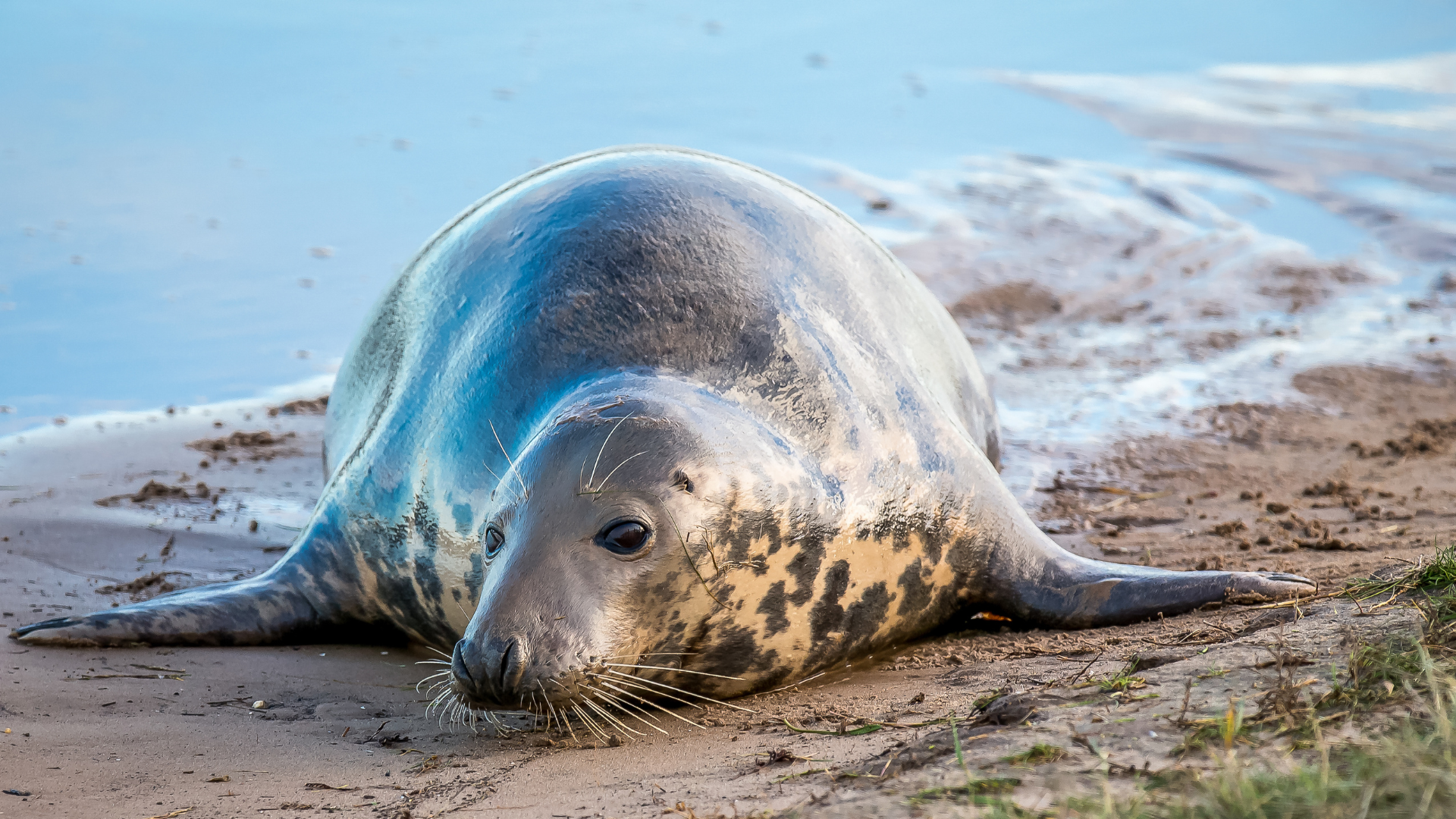As we approach International Seal Day on March 22, 2025, it’s the perfect time to celebrate the fascinating world of seals in Plymouth Sound National Marine Park. This special day is dedicated to raising awareness about seal conservation worldwide, and we’re excited to highlight the importance of these marine mammals in our local ecosystem.

Common Seal: The Curious ‘Canine’ of the Sea
The common seal, also known as the harbour seal, is a charming resident of Plymouth Sound National Marine Park. With their dog-like faces, large brown eyes, and snub noses, these seals are sure to capture your heart. Here are some fun facts about these marine marvels:
- Common seals can dive for up to 10 minutes, slowing their heart rate from 120 beats per minute to just 40 to conserve oxygen.
- They’re excellent swimmers, using their powerful rear flippers to propel themselves through the water.
- Pups can swim and dive just hours after birth!
Grey Seal: The Hook-Nosed Sea Pig
The grey seal, whose scientific name actually means “hook-nosed sea pig” in Greek, is the largest land-breeding mammal in the UK. These impressive creatures are full of surprises:
- Grey seal pups weigh only about 14 kg at birth but quickly bulk up thanks to their mother’s high-fat milk.
- They can dive to depths of around 70 metres when searching for food.
- Grey seals can stay underwater for up to 16 minutes by slowing their heart rate to conserve oxygen.
Ecosystem Engineers
Both common and grey seals play vital roles in our marine ecosystems. They act as nutrient circulators, contributing to necessary nutrient circulation in our oceans, which helps maintain the health of marine environments. This process is crucial for supporting a diverse range of marine life.
Grey seals also have a surprising impact on local vegetation. On nutrient-limited islands, their presence can enrich the soil, promoting ecosystem stability and supporting a variety of plant species. This unique role highlights the interconnectedness of marine and terrestrial ecosystems.
As top predators, seals help maintain marine biodiversity through their ecosystem services. By controlling fish populations and other marine species, they ensure that no single species dominates the ecosystem, keeping it balanced and resilient.
Celebrating International Seal Day
On March 22, we join the world in celebrating International Seal Day, a day dedicated to raising awareness about the importance of protecting seals and their habitats. Here are some ways you can celebrate:
- Learn More: Dive deeper into the fascinating world of seals. The more we understand, the better we can protect them. Take a look at Cornwall Seal Group Research Trust or the Marine Conservation Society
- Report Sightings: If you’re lucky enough to spot a seal, report your sighting! For grey seals, you can register your sighting with the Cornwall Seal Group to aid their monitoring work.
- Respect Their Space: When observing seals, always maintain a respectful distance to avoid causing distress.
In Plymouth Sound, efforts are underway to protect these amazing creatures. New signs have been installed to remind visitors to give seals space, especially around popular spots like Devil’s Point and Commercial Wharf slipway.
If you see any seals when in, on or around the water in Plymouth Sound, it’s important not to disturb them – keep your distance, stay quiet and use binoculars for a closer looks. Remember we are visitors in their space, it is essential to follow all guidelines provided to ensure the well-being of these marine marvels. By doing so, we can continue to enjoy the presence of seals in our water for generations to come. For any additional information on how to act around marine mammals please visit: Disturbance of Wildlife and Habitats | Plymouth Sound & Tamar Estuaries Marine Protected Area

